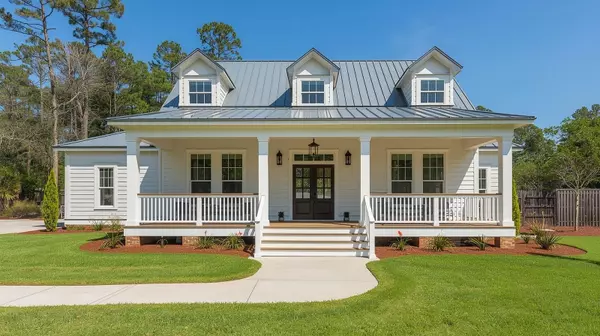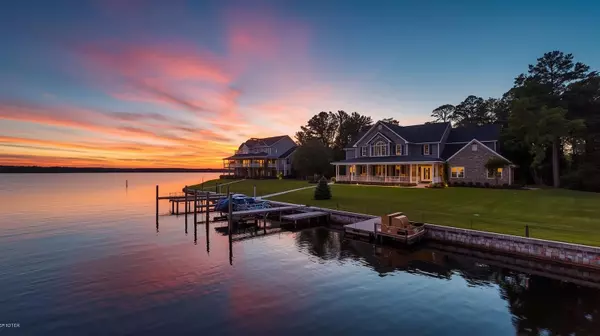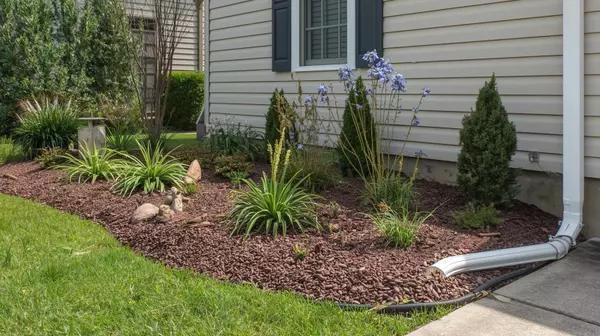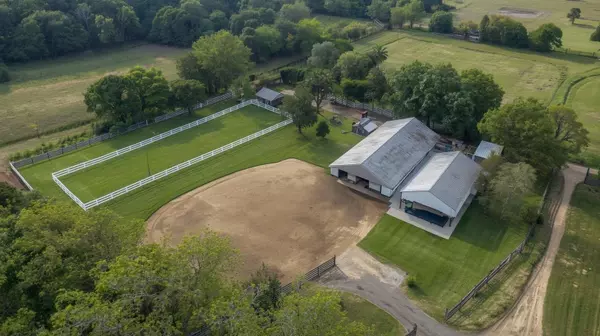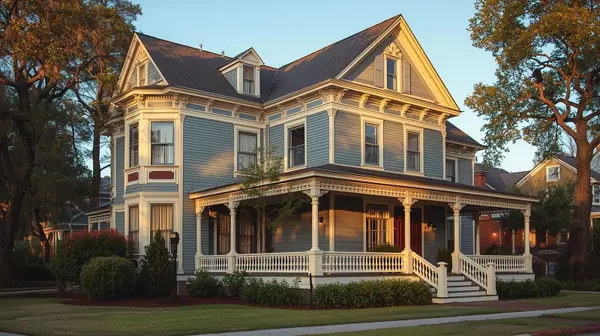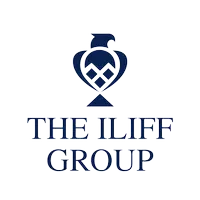The Complete Guide to Moving to Summerville SC with a Horse
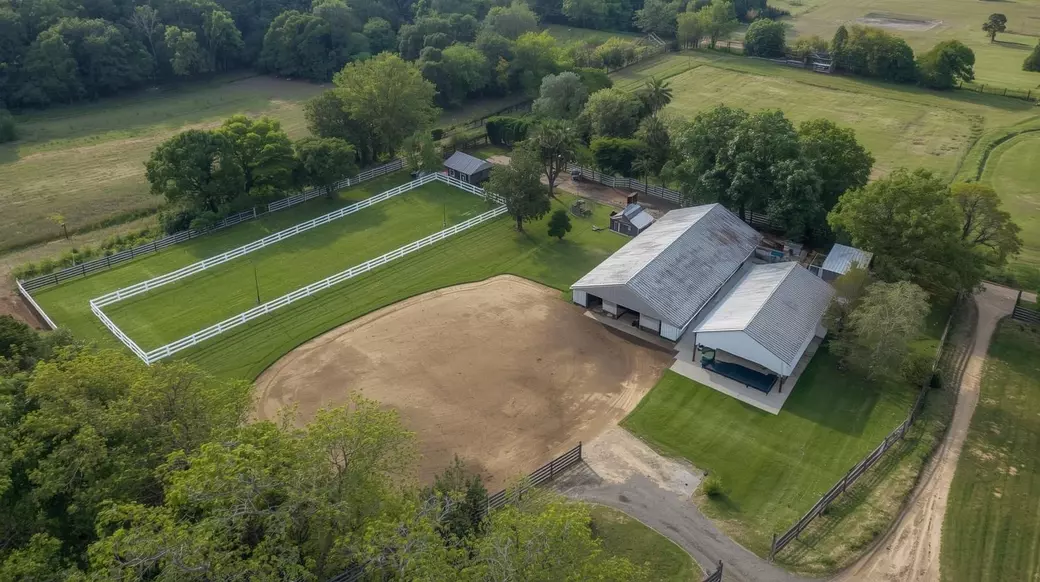
The Complete Guide to Moving to Summerville, SC with a Horse
Moving your horses to a new home is one of the most complex real estate transactions a person can undertake. It's not just about finding a house for your family; it's about securing suitable land, navigating specific zoning, and connecting with a reliable local equine community. Fortunately, Summerville, South Carolina, and the surrounding Dorchester County area offer a rich, supportive environment for horse owners.
As a dedicated husband and wife real estate team, we specialize in bridging the gap between residential and agricultural properties, helping you secure that perfect equestrian estate. We’ll show you where to find the acreage you need, the stables that offer exceptional boarding, and the vital local resources that will make your transition to the Lowcountry seamless.
Phase 1: Locating Equestrian Property in the Greater Summerville Area
Finding land with enough acreage or a move-in ready farm requires specialized knowledge. We understand that your search criteria extend far beyond bedrooms and bathrooms.
Key Areas for Horse-Friendly Acreage
While the town of Summerville itself is becoming more suburban, the surrounding areas of Dorchester County and Berkeley County maintain a strong rural character ideal for horses.
-
Ridgeville: Located west of Summerville, Ridgeville is perhaps the most popular destination for true horse farms. Properties here often feature large acreage tracts, established pastures, and existing barn structures. The zoning is typically more favorable to agricultural use, making it easier to maintain your animals on your own property.
-
Knightsville/Orangeburg Road Corridor: This area, located on the western and southern edges of Summerville, still offers some larger lots and is a classic choice for smaller, private equestrian setups. Homes here balance access to town amenities with the space needed for a few horses.
-
Rural West Ashley & Johns Island (A Short Drive): While a little further, areas like Ravenel (home to communities like Poplar Grove, which boast excellent equestrian amenities) and Johns Island are crucial to mention. These offer larger, established horse communities, but the commute to Summerville proper will be longer. We find that many horse owners are willing to drive slightly further for the perfect barn setup.
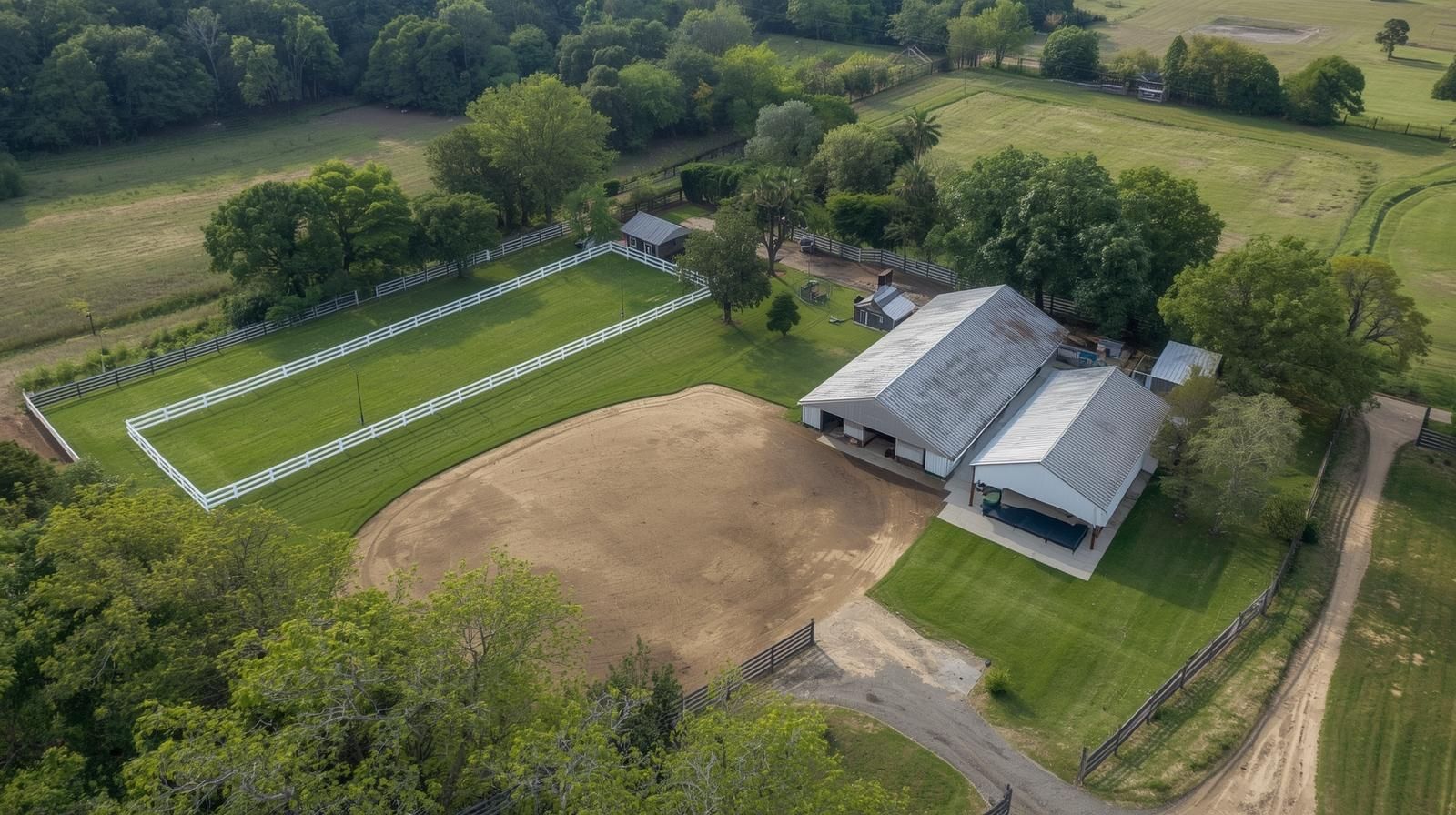
Navigating Zoning and Acreage Requirements
The most critical step in buying an equestrian property is verifying the zoning and local ordinances with the county. The general rule of thumb for horse owners in the Lowcountry is often a requirement of one to two acres per horse, but this can vary dramatically based on the property's specific location (within town limits, unincorporated county, or a planned community).
-
Dorchester County Zoning: We always contact the Dorchester County Planning & Zoning Department to confirm the minimum lot size and setback requirements for structures like barns and run-in sheds. Agricultural exemptions are often available but must be confirmed for each unique parcel of land.
-
Due Diligence Checklist: Before we recommend a property, we look for key features vital to horse health and management, including:
-
High Ground and Drainage: The Lowcountry is prone to rain; excellent drainage is essential to avoid muddy paddocks and health issues like thrush.
-
Established Fencing: High-tensile, wood, or no-climb wire fencing is a huge asset, as new fencing is a major expense.
-
Water Access: Reliable, ample water supply for the barn and troughs is non-negotiable.
-
Phase 2: Boarding Solutions for the Lowcountry Commute
Not every horse owner wants the responsibility of a private farm, and many properties don't have the acreage or setup for self-care. Luckily, Summerville has a fantastic network of professional boarding facilities.
Premier Local Boarding Stables and Amenities
Whether you need full-service care or a solid facility with an arena for training, the Summerville area stables are highly reputable. Boarding often provides better access to top-tier trainers, specialized arenas, and the camaraderie of a strong equestrian community.
-
Full-Service Facilities: These barns typically offer stall board, daily turn-out, feeding, blanketing, and all management needs. This is ideal for busy professionals and competitive riders.
-
Partial/Pasture Board: A more affordable option where the stable provides the land and perhaps a run-in shed, but the owner manages the daily feeding and cleaning. This option works best for easy keepers or retired horses.
-
Key Amenities to Look For: When evaluating a stable, we recommend looking for:
-
Covered Riding Arenas: A necessity for riding comfortably during the intense heat of the South Carolina summer or the frequent rain.
-
Quality Footing: Good arena footing is vital for your horse's long-term soundness.
-
On-site Management: A stable manager who lives on-site provides the best security and response to emergencies.
-
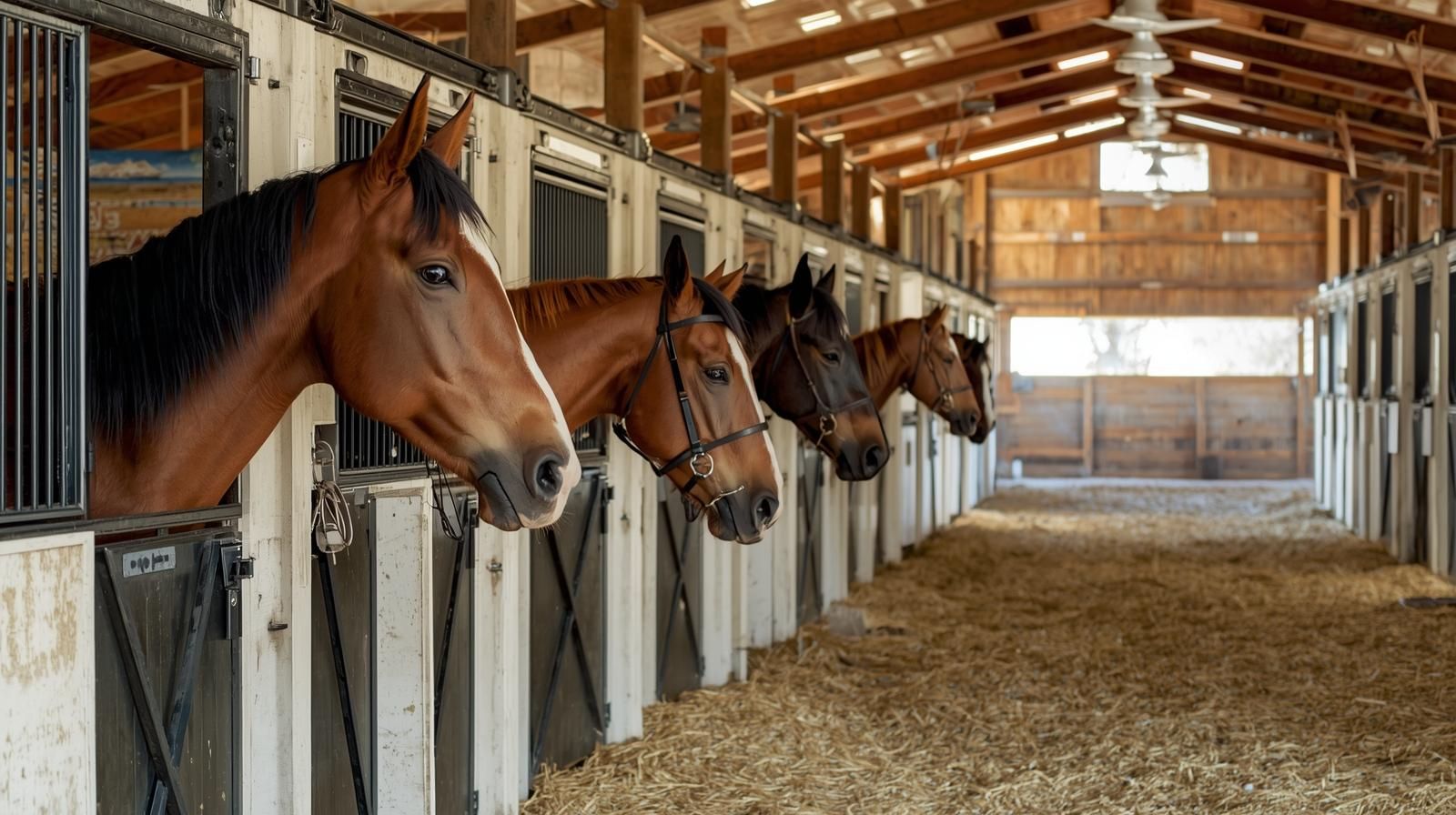
Understanding Lowcountry Boarding Costs
Boarding costs in the Summerville area are generally competitive compared to other major equestrian hubs but reflect the level of service provided. Full-service board can range significantly, depending on feed, specialized care, and facility quality. We advise our clients to budget for a monthly fee and factor in additional costs for farrier work, veterinary care, and special supplements.
-
Proximity to Show Grounds: If you are a competitive rider, consider a stable that offers easy trailer access to local show venues and hunter/jumper or dressage circuits in the greater Charleston area.
Phase 3: The Lowcountry Equestrian Community and Support
The transition to a new area is made easier when you have reliable, high-quality support services for your horses. The Summerville area is served by excellent equine professionals.
Finding Top-Tier Equine Veterinary Care
You need a vet who is experienced with the challenges of the Southern climate, from Cushing's disease management in the heat to proper insect control.
-
Charleston Equine Clinic: This well-established clinic is physically located in Summerville and offers a wide range of services, including ambulatory care (they come to your farm) and in-clinic procedures. We've found their reputation for emergency services and preventative care to be exceptional.
-
Other Local Ambulatory Practices: Several reputable veterinary practices serve Dorchester, Berkeley, and Charleston counties, specializing in everything from preventative care to sports medicine. It’s important to establish a relationship with a vet before an emergency arises.
Reliable Farriers and Feed Suppliers
A good farrier is the backbone of horse health. The demand for qualified farriers is high in the Lowcountry, so securing a referral and booking appointments well in advance is crucial.
-
Referral Networks: We always recommend asking for referrals from the local boarding stables and respected trainers, as they have firsthand experience with reliability and skill.
-
Local Feed and Hay: Summerville has several quality feed stores, but the availability and price of good quality hay can fluctuate dramatically, especially depending on where it’s sourced (local coastal hay or imported Northern hay). We advise new residents to connect with local farmers and suppliers early to secure a consistent, high-quality source.
Trail Riding and Local Clubs
The Lowcountry offers unique opportunities for trail riding, often through beautiful maritime forests and nature preserves.
-
Poplar Grove (Ravenel): While a community itself, it offers one of the best trail systems in the area, over 50 miles of maintained trails, and is often accessible through boarding or day-use agreements.
-
Edisto River Area: The rural areas around the Edisto River offer more challenging, beautiful, and less-maintained trail riding options for the adventurous equestrian.
-
Riding Organizations: Joining local clubs is the fastest way to integrate into the community and find competitive opportunities or organized trail rides. We can point you toward the most active hunter/jumper, dressage, and Western clubs in the Charleston area.
Phase 4: Selling Your Existing Equestrian Property for a Smooth Move
If you are selling an equestrian property out-of-state to make the move to Summerville, we want to ensure you maximize your sale to fund your new Lowcountry farm.
Maximizing the Value of Your Current Farm
Selling a specialized property requires a targeted marketing approach.
-
Highlight the Barn and Footing: Buyers of horse property value the facilities as much as the home. We emphasize the quality of the arena footing, the number and size of stalls, and the functional layout of the barn.
-
Document Local Amenities: The proximity to local show venues, tack stores, and farrier services is a huge selling point for any horse farm.
-
The Buyer Profile: We know that equestrian properties attract a niche buyer. We tailor our marketing efforts, using professional photography and detailed descriptions, to reach this specific, qualified audience, ensuring your farm stands out to the right people.
Strategic Timing for a Dual Closing
Coordinating the sale of your old home/farm with the purchase of your new property in Summerville is complex, especially with animals involved. We work as a unified team to:
-
Secure Bridge Financing: If necessary, we connect you with lenders who offer bridge loans, allowing you to purchase your new farm before your old one closes, which is often essential in a competitive market.
-
Coordinate Temporary Boarding: If your closings don't align perfectly, we'll help you coordinate temporary, high-quality boarding in the Summerville area for your horses to minimize travel and stress during the transition.
Are you ready to trade the hassle of your current home for the ease of equestrian life in Summerville? Moving horses is a massive endeavor, and you need a team that understands acreage, zoning, and barn construction as well as residential markets. Let us navigate the complexities of finding your perfect Lowcountry equestrian estate.
Click here to schedule a private consultation and receive our Exclusive Lowcountry Equestrian Property Checklist!
Explore our featured listings of Summerville and Ridgeville Horse Farms with 5+ Acres that are currently on the market!
Top 5 Questions About Buying or Selling an Equestrian Home
1. What is the minimum acreage required to keep a horse in Dorchester County?
-
Question: We want to keep two pleasure horses on our property; what is the absolute minimum acreage we would need to comply with local Summerville area ordinances?
-
Answer: While there’s no single answer that covers all of Summerville's different zones, the general guideline is one to two acres per horse for suitable management and county approval. In unincorporated Dorchester County, zoning is typically more lenient, but within town limits, regulations are stricter, so we must always verify the specific parcel's zoning code.
2. How does the risk of flooding affect properties with large pastures near Summerville?
-
Question: Given the Lowcountry's reputation, how high is the risk of flooding, and what features should we look for to protect our pastures and barn?
-
Answer: Flood risk is a significant factor, and low-lying areas can become marshy, making pastures unusable after heavy rain. We prioritize farms that are located on higher ground with excellent natural drainage or that have well-maintained drainage ditches. Flood insurance may be required, so we will research the flood zone designation for any property before you make an offer.
3. Is it better to build a custom barn or buy a property with an existing one?
-
Question: We have the option to buy land or a turn-key property; what is more cost-effective and less stressful for an out-of-state move with horses?
-
Answer: Buying a property with an existing, well-constructed barn is almost always less stressful and more cost-effective than building a custom barn from scratch. New construction involves significant delays, permit hassles, and unexpected material costs. A turn-key farm allows your horses to move in quickly, minimizing the need for temporary boarding.
4. How quickly do true horse farms sell in the Summerville real estate market?
-
Question: If we need to sell our current farm and move quickly, how liquid is the market for equestrian properties in the Summerville area?
-
Answer: Equestrian properties are a highly specialized niche, meaning they generally take longer to sell than standard residential homes. We must market them to a narrow audience of qualified buyers. Proper staging, professional photos of the facilities, and a competitive price are essential to ensure a swift sale.
5. What are the typical monthly costs for full-board at a reputable local stable?
-
Question: We might choose to board our competition horse initially; what should we budget for a full-service board near the Summerville area?
-
Answer: Full-board fees at quality stables in the Summerville and surrounding areas can typically range from $800 to $1,500 per horse, per month, depending on the amenities offered. This usually covers daily feeding, stall cleaning, and turnout. Always confirm what’s included, as supplements, farrier fees, and training often incur additional charges.
Categories
- All Blogs (41)
- Cost of Living in Summerville SC (14)
- Cost of Selling or Buying a Home (13)
- Downtown Summerville SC (2)
- Golf in Summerville SC (2)
- Guides (19)
- Lifestyle and Culture (10)
- Market Trends (2)
- Nearby Areas & Comparison Guides (8)
- Neighborhoods in Summerville SC (17)
- PCSing to Charleston SC (9)
- Property Taxes in Summerville SC (2)
- Relocation Questions & Miscellaneous Topics (17)
- Retire in Summerville SC (3)
- Schools in Summerville SC (10)
Recent Posts
